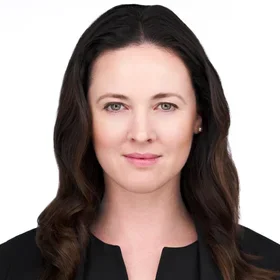After working in software development for two years, Gayathri Ganesh, '19SPS, decided to further her education by studying the data side of operations management. She now leads operations at a large robotics distribution center and largely credits the M.S. in Applied Analytics program with helping her get there.
Tell us more about your summer internship. Did you intern while you were still enrolled in Columbia's Applied Analytics master's program? How did the master's program complement your internship experience?
I interned with Schneider Electric in Texas as an Operations Analytics Intern while enrolled in the Applied Analytics program. Applied Analytics Frameworks 1 and 2 were two significantly helpful courses during my internship. Exposure to technical concepts and supply chain training as an intern complemented my work and learning. At the close of my internship, I had already received multiple full-time offers; I decided to take the Operations Manager position with Amazon.
Before coming to Columbia, you worked as a software developer. What led you to the decision to pivot your career to operations and supply chain management?
I wanted to learn about analytics and data management because the world is full of data. Generating insights from data can change the way we live. During my internship, my exposure to supply chain logistics taught me the effectiveness of also integrating analytics. With the trend of online shopping changing the way customers shop, I thought operations and supply chain management was the best route to pursue.
I wanted to learn about analytics and data management because the world is full of data. Generating insights from data can change the way we live.”
Why did you want a degree in Applied Analytics specifically? What made Columbia the right choice for you?
As a Software Developer, I began to feel helpless in not understanding [the] customer response to what I was producing… I chose Columbia University largely because of the perfect blend of this program’s technical and managerial courses. Pursuing analytics allowed me to understand large amounts of data and to identify trends. It’s like getting an MBA with a concentration in analytics with or without the requirement of work experience. The M.S. in Applied Analytics program helps a lot of young leaders like myself who want to grow in their careers exponentially.
Describe the most challenging part(s) of the Applied Analytics program. How did the program give you the skills to become a leader and a manager?
The assignments are the most challenging part of the program because of their thoroughness. The amount of learning and preparation that goes into each assignment was intricate because the curriculum was made to prepare students to master the subject.
As a Software Developer, I began to feel helpless in not understanding [the] customer response to what I was producing… I chose Columbia University largely because of the perfect blend of this program’s technical and managerial courses.”
What advice would you give to a current student looking for career opportunities after graduation? How can they utilize the Applied Analytics faculty and staff as well as the Career Design Lab to advance in their career?
Trust the coursework. As I mentioned, this curriculum helps students master the subject. Building rapport with and utilizing access to the professors and TAs can be so helpful as they often give great career advice. I would also recommend attending all workshops and panels conducted by Career Design Lab and to network with the people conducting those. Initially, I did not know how to network effectively because I did not know what networking was. It was through the panels conducted by Career Design Lab that I understood how effective networking can be. The Career Design Lab also offered mock interviews and access to coaches who would offer feedback. This allows students to go into interviews more confidently. It was through Career Design Lab events that I was able to meet the contact who told me about my current position at Amazon.
It was through the panels conducted by Career Design Lab that I understood how effective networking can be.”


